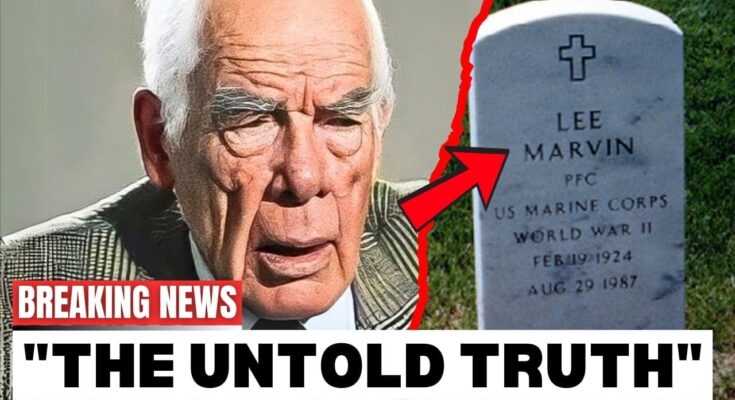Lee Marvin, born in 1924, was far more than just the “tough guy” roles he became famous for. His gravelly voice, piercing eyes, and imposing presence carved a unique niche in Hollywood, but beneath the rugged exterior lay a compelling life story and a talent that earned him cinema’s highest honors.
A War Hero’s Influence
Marvin’s experiences as a U.S. Marine in World War II profoundly shaped him. He saw combat in the Battle of Saipan, was wounded, and earned a Purple Heart. This harrowing service instilled in him a raw authenticity that he brought to every character, particularly those portraying soldiers or hardened individuals. His combat experience gave a gravitas to his performances that few actors could replicate.
From Villains to Unexpected Comedy
While often typecast as villains or anti-heroes, Marvin showcased remarkable versatility. He could be menacing, as seen in The Big Heat (1953), or deeply troubled, as in The Man Who Shot Liberty Valance (1962). But it was his dual role as both the drunken gunfighter Kid Shelleen and his evil twin brother Tim Strawn in the comedic Western Cat Ballou (1965) that truly stunned audiences and critics alike. This performance earned him an Academy Award for Best Actor, proving he was capable of much more than just brawn.
Iconic Roles and Enduring Impact
Marvin’s filmography is a testament to his powerful screen presence. He commanded attention in ensemble casts, notably as the ruthless Major Reisman in The Dirty Dozen (1967), leading a group of convicted soldiers on a suicide mission. In Point Blank (1967), he delivered a chilling performance as Walker, a man consumed by revenge, solidifying his status in the neo-noir genre. He continued to explore complex themes of violence, morality, and the human condition throughout his career, often challenging audience expectations.
Beyond his on-screen persona, Marvin was known for his blunt honesty and often unconventional approach to Hollywood. He remained an authentic figure, admired for his integrity and refusal to compromise his principles.
Is there anything specific about Lee Marvin you’d like to delve into next, like his personal life, his acting method, or other notable films?



